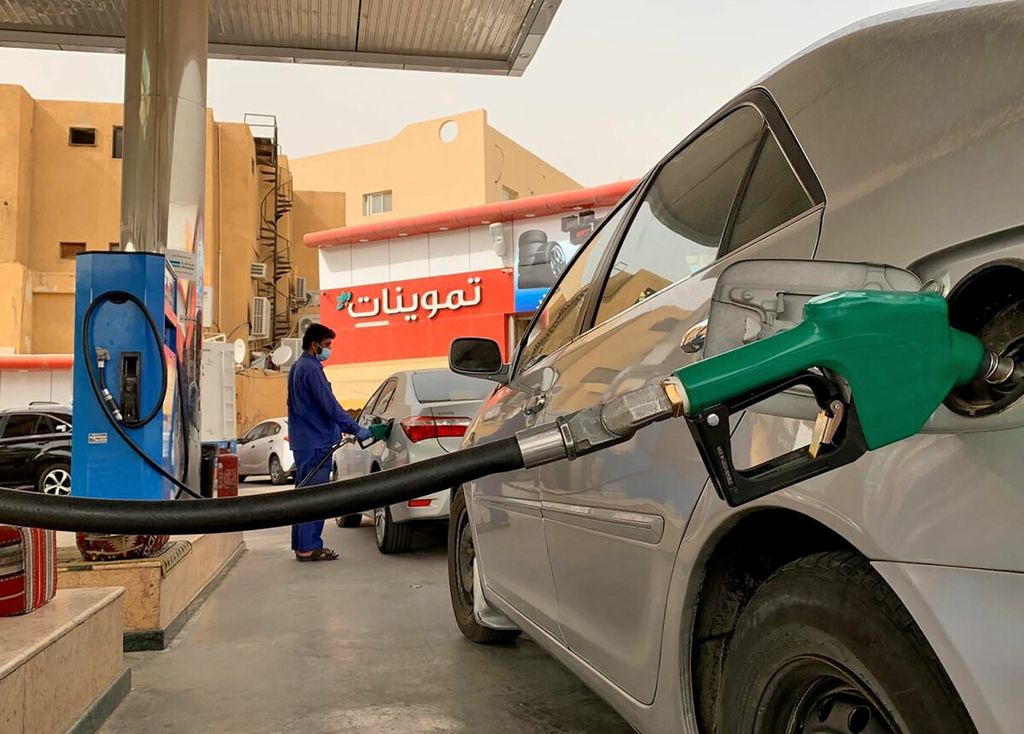Oil Prices and Pandemic Resurgence
Controlling the spike in the new COVID-19 cases seems to be an important reference for portfolio investors.
The latest development in world oil prices has been very interesting, especially because there is a reciprocal relationship between oil demand and the resurgence of COVID-19 cases. World oil demand will recover if the increase in COVID-19 transmission can be controlled, allowing room for the world economy to grow again. The Organization of the Petroleum Exporting Countries (OPEC), as a cartel, can influence market prices as its members can determine the volume of production that will be poured into the world market. However, OPEC became a victim of its own success.

A gas station attendant refills a car at a station in the Saudi capital Riyadh on May 11, 2020. - Saudi Arabia\'s energy ministry said it had asked oil giant Aramco to make an additional voluntary output cut of one million barrels per day starting from June to support prices. The move will reduce the production of the world\'s biggest crude exporter to 7.5 million barrels per day, the energy ministry said in a statement cited by the official Saudi Press Agency. (Photo by RANIA SANJAR / AFP)
High world oil prices have allowed countries in the North Sea with high production costs, such as Norway, to enter the market again. This undermines OPEC’s power as a cartel, not to mention when non-OPEC members such as Russia and several other newcomers also became more active players in the world oil market. As a result, OPEC is losing its dominance and is often said to be no longer relevant as a pricemaker.